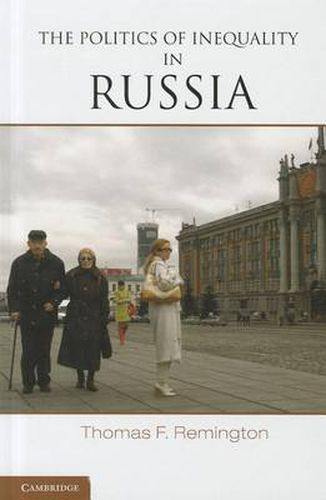Readings Newsletter
Become a Readings Member to make your shopping experience even easier.
Sign in or sign up for free!
You’re not far away from qualifying for FREE standard shipping within Australia
You’ve qualified for FREE standard shipping within Australia
The cart is loading…






This book investigates the relationship between the character of political regimes in Russia’s subnational regions and the structure of earnings and income. Based on extensive data from Russian official sources and surveys conducted by the World Bank, the book shows that income inequality is higher in more pluralistic regions. It argues that the relationship between firms and government differs between more democratic and more authoritarian regional regimes. In more democratic regions, business firms and government have more cooperative relations, restraining the power of government over business and encouraging business to invest more, pay more and report more of their wages. Average wages are higher in more democratic regions and poverty is lower, but wage and income inequality are also higher. The book argues that the rising inequality in postcommunist Russia reflects the inability of a weak state to carry out a redistributive social policy.
$9.00 standard shipping within Australia
FREE standard shipping within Australia for orders over $100.00
Express & International shipping calculated at checkout
This book investigates the relationship between the character of political regimes in Russia’s subnational regions and the structure of earnings and income. Based on extensive data from Russian official sources and surveys conducted by the World Bank, the book shows that income inequality is higher in more pluralistic regions. It argues that the relationship between firms and government differs between more democratic and more authoritarian regional regimes. In more democratic regions, business firms and government have more cooperative relations, restraining the power of government over business and encouraging business to invest more, pay more and report more of their wages. Average wages are higher in more democratic regions and poverty is lower, but wage and income inequality are also higher. The book argues that the rising inequality in postcommunist Russia reflects the inability of a weak state to carry out a redistributive social policy.